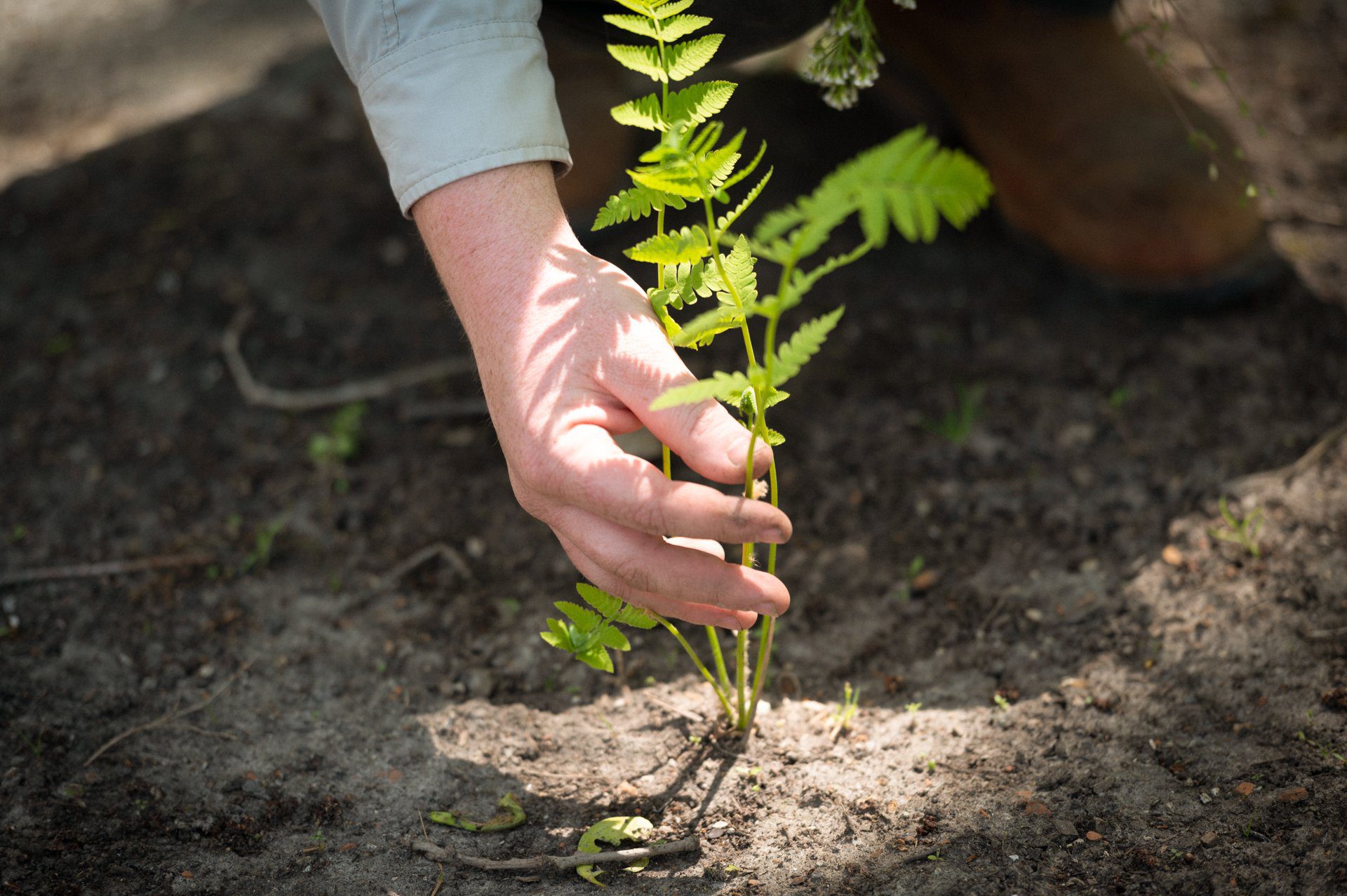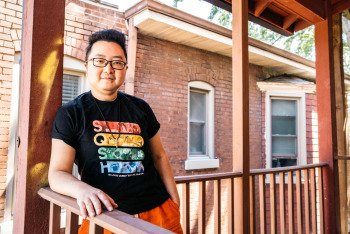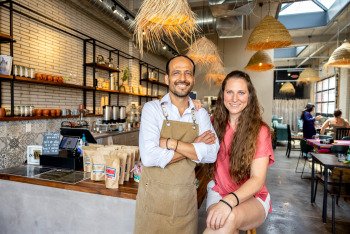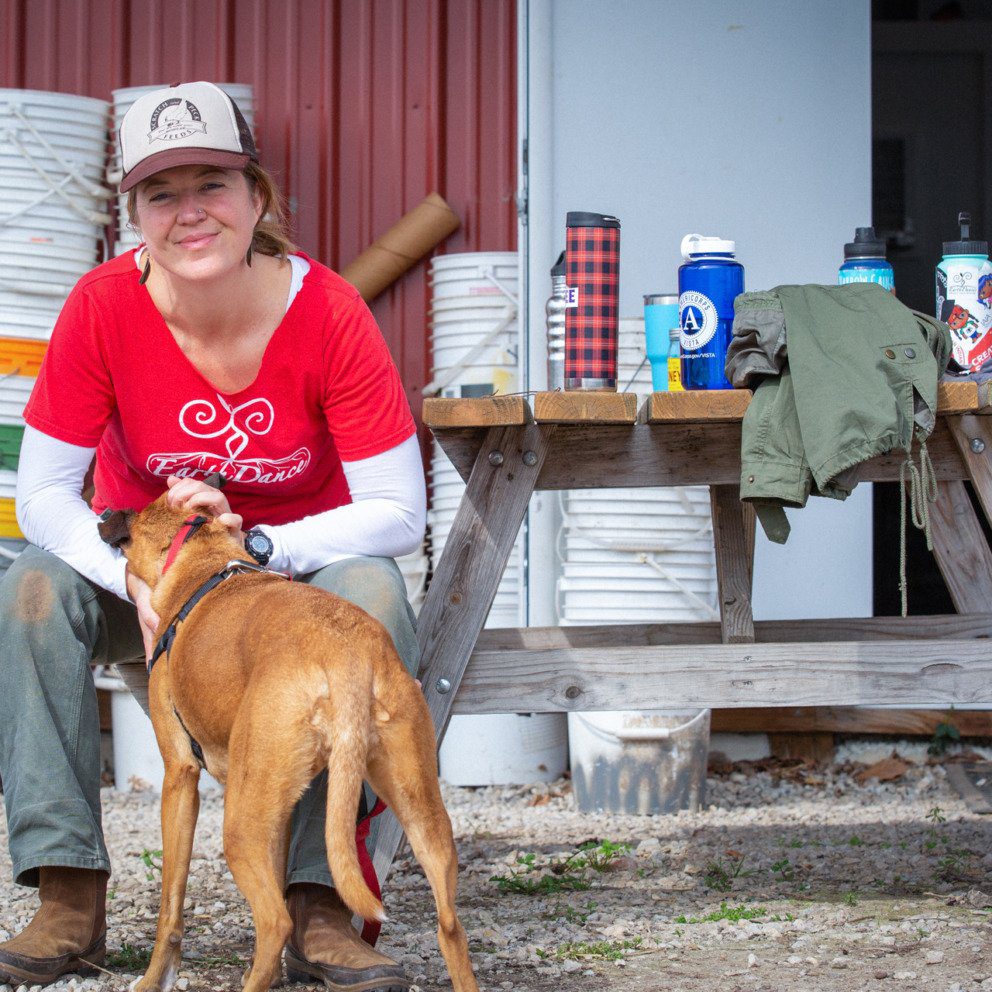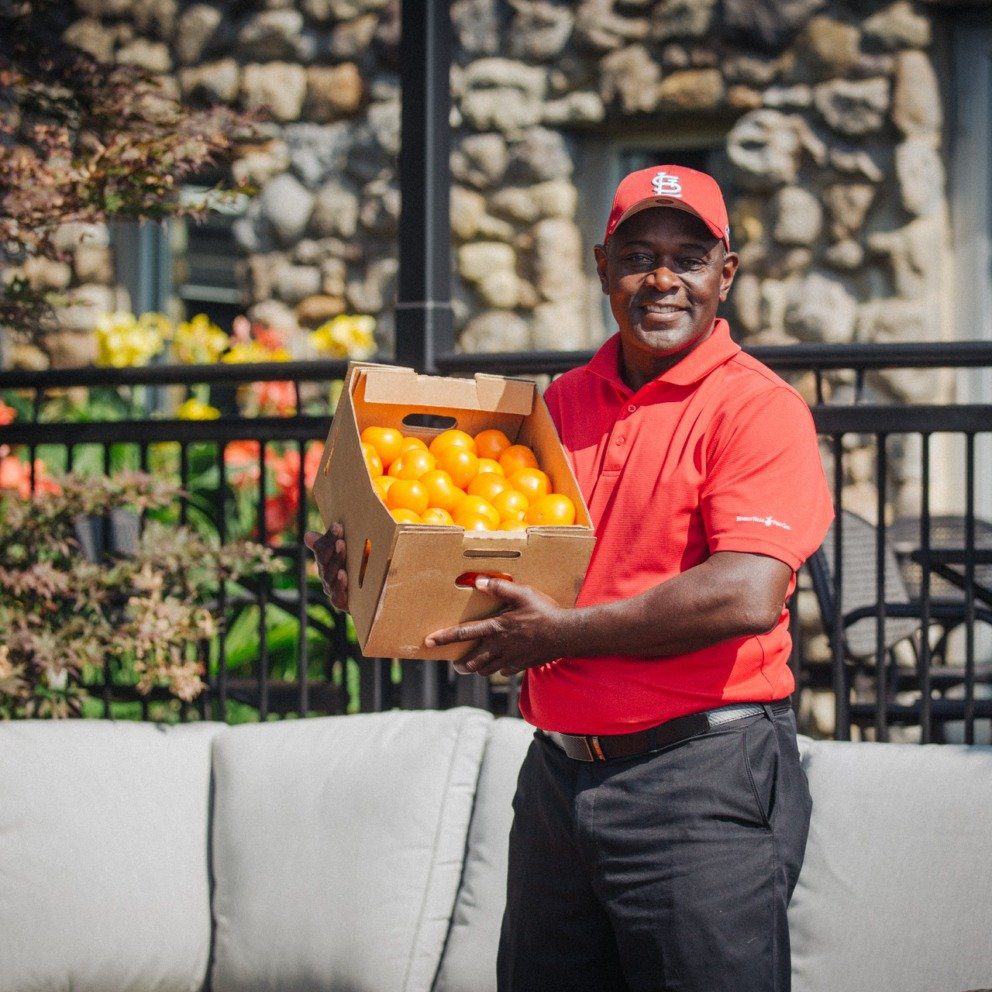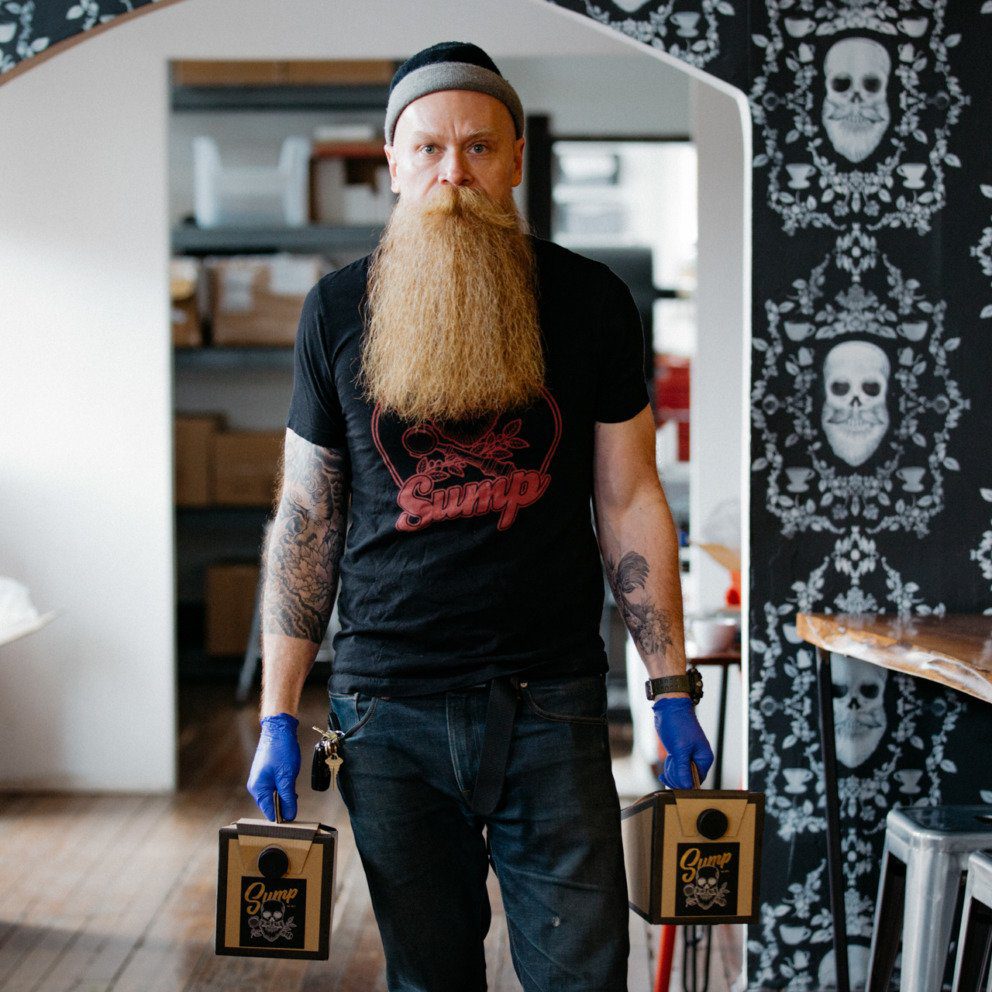Personal Growth
Home gardens flourish in quarantine, providing floral beauty, nutritious food and positive mental health benefits.
Spring does not creep subtly into Forest Park. As the weather warms, trees explode with flowers, their branches blooming white and purple, the redbuds studded with petals of shocking pink. The grounds erupt with an arsenal of 50,000 bulbs – the results of lengthy planning and planting in the cold months of the previous year. And now, even when the public’s plans are interrupted by the coronavirus, St. Louis’ largest park can’t help but put on a show.
But while Forest Park’s major summer events are cancelled and its institution remains closed, the park is working to expand the imprint of its springtime splendor through its #AtHomeWithForestPark initiative. The digital initiative brings the park’s beauty to those staying home, with photos of what’s in bloom, an “ask a horticulturist” series and videos of gardening tips. One of the people providing those answers and tips is Forest Park horticulture superintendent Roman Fox, who says there’s never been a better time to bring natural beauty to your own home.
“You conceptualize it, you have an idea in your head, you execute it and when you see it come together for me there’s a wonderful sense of accomplishment,” says Fox, whose home garden of cut flowers features sunflowers, zinnias and cosmos.
“I do enjoy the process, the long process, getting in the dirt of the soil, it centers me a little bit,” he says. “You can do things initially to make things look really good today, but what you’re doing is a long-term process.”
But with the time investment comes a steady beat of small accomplishments. A seed sprouts through the soil of a window box. A tiny, new leaf unfolds itself in the sunlight.
“It’s not the finished product,” he adds. “It never is, that’s the nature of gardening.”
Grow Through What You Go Through
In Ferguson, Missouri, a shipping container on the grounds of EarthDance Organic Farms is painted with the message, “Grow Through What You Go Through.” It speaks to founding director Molly Rockamann’s perspective on the increased interest in gardening as a silver lining to the COVID-19 crisis.
“I feel like the work we’re doing is more essential than ever,” she says. “So many folks are feeling a little bit helpless with the pandemic that’s going on, and then at same time getting back to their very basic instincts of wanting to be outside more, and wanting to grow food, maybe for the first time.”
Those instincts and drive for stability and sustainability aren’t simply symptoms of pandemic-related panic. It’s a basic human need, Rockamann says, and it’s one people are reconnecting with.
“We’ve seen that seed companies have three times the sales that they typically do this time of year,” Rockamann notes. “They can’t even actually keep up with the orders. Just how eager people are to get their hands on fresh, highly nutritious food is very real right now.”
Growing healthy food is one benefit of gardening, but there are other draws, too. One of them is the pleasure of spending time outdoors in the dirt – and it turns out that humans may instinctively want to do so because it puts them in contact with a bacteria that naturally occurs in soil and provides mental health benefits. Research on myobacterium vaccae shows that mice who were given the bacteria had increased levels of serotonin and decreased levels of anxiety, and could be part of the reason why people feel better after spending time planting, weeding and watering.
“A lot of people can get the sense that they feel better when they’re outside. It’s a good stress relief to be out in nature. Of course, that’s true. People have real, lived experience of that,” Rockamann says. “But the fact that there’s actually research to back up the fact that this microbacterium vaccae is a substance that’s been shown to have the same effect on our neurons that drugs like Prozac offer. To me, that’s just an absolute game changer.”
Guiding New Gardeners
Across the river, in Belleville, Illinois, Sandy Richter has met the explosion of public home-gardening interest by converting her gardening center, Sandy’s Back Porch, into a curbside operation.
Richter laments the physical absence of her customers, but in the meantime she’s begun filming livestreamed tours of the greenhouse and connecting with shoppers through Facebook Live chats. She’s also moved her inventory to a remote ordering and pickup system, with lots of requests coming in for tomatoes, peppers and other vegetables.
Richter has some advice for first-time gardeners: Don’t overwhelm yourself. “Two tomatoes or peppers is enough. Don’t buy 20 tomatoes, you’ll be sorry you did.”
With life slowing down in quarantine, Richter suggests first-timer gardeners spend digging around online resources before making their first purchases at garden centers. Her favored resources include gardeners.com, which introduces square-foot gardening techniques with pre-planned and plan-your-own-garden tools. Richter also suggests the deep trove of knowledge at the Missouri Botanical Garden, which maintains a horticulture help line and offers a deep trove of online resources for planning new gardens or expanding your own.
Why is gardening booming now? Richter points to the positive mental health effects of gardening, particularly at a time when it’s easy to sink into drudgery and endless Netflix binges.
“There is something consistent about Mother Nature that we all crave,” Richter suggests. “The world can be a crazy, chaotic place, but the sun still shines, it still rains, and if you put a seed in the ground, it’s going to grow.”
Join the Story
- Take a (socially distanced) visit to Forest Park with the #AtHomeWithForestPark campaign, where you can enjoy guided virtual tours, listen to the sounds of the park and submit gardening questions to the park’s horticulturalists.
- View the plants available Sandy’s Back Porch.
- Follow EarthDance Organic Farm School on Facebook for gardening tips.
